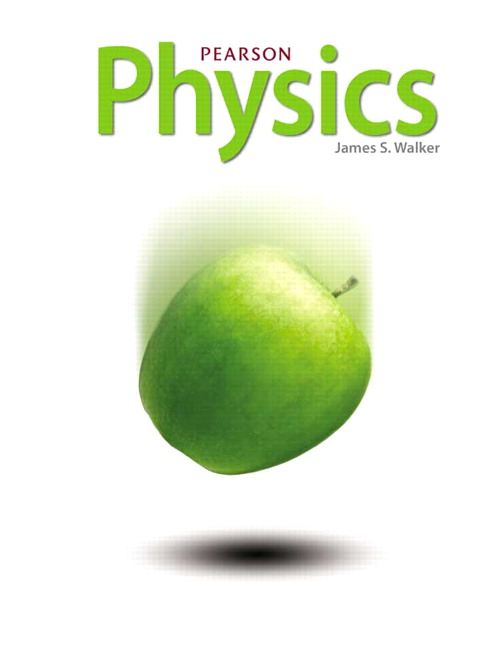
All Solutions
Page 747: Practice Problems
$$
I=frac{Delta Q}{Delta t}
$$
expressing time interval from the previous relationship we have:
$$
Delta t=frac{Delta Q}{I}
$$
From the $textbf{Example 21.2.}$ we can take and assume that current passing is 0.22 A, but we need to calculate the total charge assumed for this amount of electrons and this magnitude of the current. We know that the ratio of total charge per one electron charge will give the number of electrons:
$$
N=frac{Delta Q}{e}
$$
So the total charge will be:
$$
Delta Q = N e
$$
Putting in the numbers we have:
$$
Delta Q = 7.5 times 10^{18} cdot 1.6times 10^{-19}
$$
We have a result of:
$$
Delta Q = 1.2 mathrm{~C}
$$
Now we have all the information’s to calculate the time interval, so getting back to the relationship we have written at the start we have:
$$
Delta t=frac{Delta Q}{I} = frac{1.2 mathrm{~C}}{0.22 mathrm{~A}}
$$
$$
Delta t=frac{Delta Q}{I} = boxed{color{#c34632}5.45 mathrm{~s}}
$$
Delta t=5.45 mathrm{~s}
$$
$$
I=frac{Delta Q}{Delta t}
$$
We have 3600 C and 17 min. Since we need to work with seconds, we convert minutes to the second. So 17 minutes will be 1020 seconds ( 1 min = 60 s). So putting in the numbers for our current relation we have:
$$
I=frac{3600 mathrm{~C}}{1020 mathrm{~s}}
$$
$$
boxed{color{#c34632}I=3.53 mathrm{~A}}
$$
I=3.53 mathrm{~A}
$$
$$
I=frac{Delta Q}{Delta t}
$$
expressing the time we have:
$$
Delta t=frac{Delta Q}{I}
$$
We put in the numbers:
$$
Delta t=frac{14 mathrm{~C}}{0.18 mathrm{~A}}
$$
We have the result of:
$$
boxed{color{#c34632}Delta t=77.78 mathrm{~s}}
$$
Delta t=77.78 mathrm{~s}
$$
Haven't found what you were looking for?
Search for samples, answers to your questions and flashcards

